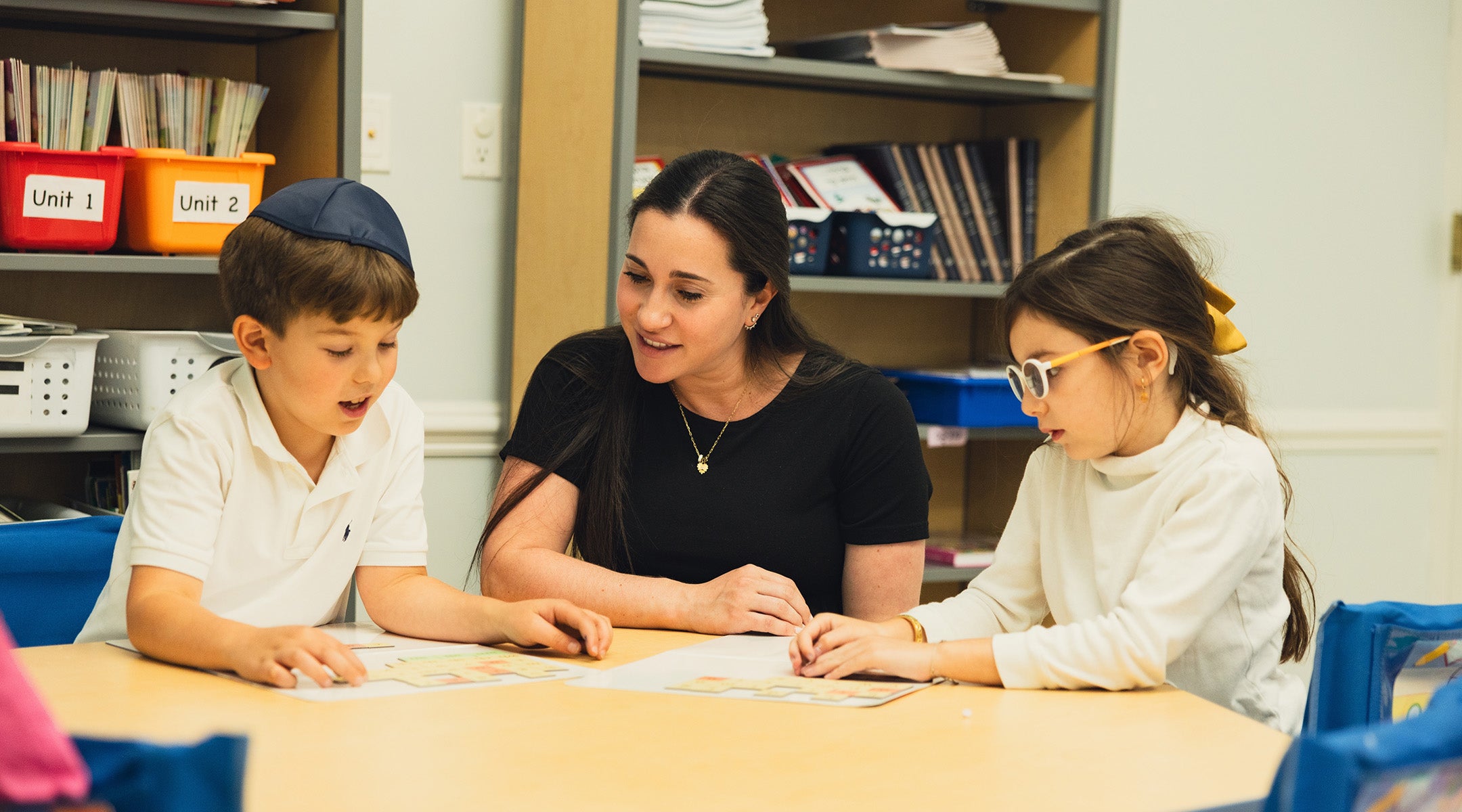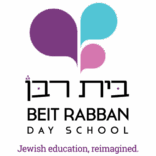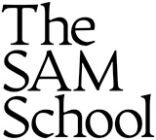Uncategorized
NY Day Schools Admissions Guide

Choosing the right school for your child is one of the most important decisions a parent can make — and in New York, the range of Jewish Day Schools and Yeshivas offers a rich variety of options to meet the needs of every family. Whether you’re seeking a rigorous dual curriculum, an emphasis on religious growth and community, or a balanced approach that integrates strong academics with Jewish values, the schools reflect the diversity and vibrancy of the Jewish community itself. New York’s Jewish Day Schools and Yeshivas encompass a broad spectrum of educational philosophies and religious affiliations — from Modern Orthodox, Yeshivish, and Chassidic schools to community, Conservative, and pluralistic institutions. Each school brings its own approach to Torah study, secular education, extracurricular enrichment, and student life, ensuring that every family can find a setting that aligns with their values and educational goals.
The admissions process typically runs from October through January and can vary by school, but generally includes an application form, interviews with parents and students, academic assessments, and school visits or open houses. Many schools also request teacher recommendations and prior school records. Because demand for spots can be high, especially in certain grades or neighborhoods, early preparation and open communication with admissions offices are key. Check the individual school websites for information about their open houses and application process.
Here are three school open houses you should know about from our partners Beit Rabban, Rodeph Sholom and The Stanley I. Chera SAM School.
Rodeph Sholom School

Rodeph Sholom School is an exceptional independent Jewish Day School serving students from Nursery through 8th Grade on Manhattan’s UWS. As the only Reform Jewish day school in NYC, we provide opportunities for students to thrive personally, academically, and spiritually through academic rigor, joyful exploration, and an inclusive community where Jews from all backgrounds feel at home. Our divisions—Early Childhood (Twos-Kindergarten), Elementary (1st-4th Grade), and Middle School (5th-8th Grade)—provide developmentally appropriate challenges while preserving the wonder of childhood. Guided by our values of Pursuit of Wholeness, Love of Learning (Limmud), Community (Kehilah), and Responsibility (Achrayut), we develop each student’s intellectual curiosity and sense of responsibility.
Our curriculum emphasizes informed choice and meaningful experiences rooted in tradition, identity, ethics, and critical thinking, fostering connections to Israel and commitments to justice and belonging. At Rodeph Sholom School, students discover their potential as learners, leaders, and engaged members of both Jewish and global communities.
For all tour and open house opportunities, visit: https://www.rodephsholomschool.org/admissions/#openhouse
Pre-K – 8th Grade Open House
Thursday, October 30, 2025
6:00 pm – 7:30 pm
REGISTER
Twos and Threes Open House
Wednesday, November 5, 2025
9:00 am – 10:30 am
REGISTER
Beit Rabban Day School

Welcome to Beit Rabban Day School! We are an intentionally non-denominational, inclusive Jewish community on Manhattan’s Upper West Side, serving students in Nursery through Eighth Grade. Our program fuses rigor with wonder to foster active learners who are adept critical thinkers, empowered Jews who possess the fluency, passion and skills to live rich Jewish lives, curious human beings who look at learning as a lifelong endeavor, and kind community members who care for themselves, their immediate communities, Israel and their world. At every stage – in preschool (Gan), elementary (Kevutzot), and middle school (Chativah) – we teach students how to learn, and in doing so, we cultivate in them the confidence, knowledge and desire to challenge themselves. So bring us your beliefs, your practices and affiliations, your varied family structures. That strengthens us. In return, your children will experience deep, joyful learning and an anchoring sense of belonging—a foundation that will carry them through life.
Open HouseThursday, November 20, 20257:00 pm – 8:30 pm (Doors open at 6:45pm)RSVP
The Stanley I. Chera SAM School

The Stanley I. Chera SAM School is an innovative Jewish day school on Manhattan’s Upper East Side, serving students from early childhood through middle school, with plans to expand into high school. At SAM, education is deeply personal, with small class sizes to ensure every child is known, supported, and challenged. Our integrated curriculum blends rigorous academics with rich Judaic studies, STEM, and the arts, creating a learning environment that is joyful, experiential, and meaningful. Students build resilience, creativity, and critical thinking through hands-on projects, fieldwork across New York City, and immersive arts experiences, from robotics to individual piano lessons. Rooted in Sephardic tradition and Torah values, SAM emphasizes community, character, and emotional well-being, helping children grow with confidence and compassion. Families experience a warm, close-knit community where children thrive, teachers inspire, and Jewish identity is nurtured for a lifelong love of learning.
Open House
Wednesday, October 22, 2025
7:30 pm
7 East 96th StreetRSVP
Bronx
Kinneret Day School
http://kinneretdayschool.org/
Grades: K – 8
Brooklyn
Be’er Hagolah Institute
https://www.beerhagolah.org/
Grades Preschool – 12
Hannah Senesh
https://www.hannahsenesh.org/
Grades: K – 8
Luria Academy of Brooklyn
https://luria-academy.org/
Grades: Preschool – 8
Magen David Yeshivah
https://mdyschool.org/
Grades: Preschool – 12
Yeshivah of Flatbush
https://www.flatbush.org/
Grades: Preschool – 12
Manhattan
The Heschel School
https://heschel.org/
Grades: Preschool – 12
Manhattan Day School
https://www.manhattanday.org/
Grades: Preschool – 8
Manhattan High School for Girls
https://www.manhattan-hs.org/
Grades: 9 – 12
Rabbi Arthur Schneier Park East Day School
https://parkeastdayschool.org/
Grades: Preschool – 8
Ramaz
https://www.ramaz.org/
Grades: Preschool – 12
The Shefa School
https://www.shefaschool.org/
Grades: K – 8
Yeshiva University High School for Boys – MTA
http://www.yuhsb.org/
Grades: 9 – 12
Queens
Queens Hebrew Academy (Solomon Schechter School of Queens)
https://www.sssq.org/
Grades: Preschool – 8
Yeshiva Har Torah
http://www.hartorah.org/
Grades: Preschool – 8
Yeshiva of Central Queens
http://www.ycqweb.org/
Grades: Preschool – 8
Yeshiva University High School for Girls
http://www.yuhsg.org/
Grades: 9 – 12
Long Island
Hebrew Academy of Long Beach – HALB
https://www.halb.org/
Grades: Preschool – 12
Hebrew Academy of Nassau County – HANC
https://www.hanc.org/
Grades: Preschool – 12
Hebrew Academy of the Five Towns and Rockaway – HAFTR
https://www.haftr.org/
Grades: Preschool – 12
Long Island Hebrew Academy
https://lihagn.org/
Grades: Preschool – 8
Mercaz Academy
https://mercazacademy.org/
Grades: Preschool – 6
North Shore Hebrew Academy
https://www.nsha.org/
Grades: Preschool – 12
Solomon Schechter School of Long Island
https://www.schechterli.org/
Grades: K – 12
Yeshiva Ketana of Long Island
http://ykli.org/
Grades: Preschool – 8
Westchester
The Leffel School
https://www.leffellschool.org/
Grades: K – 12
Westchester Day School
https://www.westchesterday.org/
Grades: Preschool – 8
Westchester Hebrew High School
https://www.whhsny.org/
Grades: 9 – 12
Westchester Torah Academy
https://westchesterta.org/
Grades: Preschool – 8
—
The post NY Day Schools Admissions Guide appeared first on Jewish Telegraphic Agency.
Uncategorized
Hamas Tightens Grip in Gaza as Trump Pushes Peace Plan

A Hamas Police officer directs traffic in Gaza City, Jan. 28, 2026. Photo: REUTERS/Stringer
Hamas is cementing its hold over Gaza by placing loyalists in key government roles, collecting taxes, and paying salaries, according to an Israeli military assessment seen by Reuters and sources in the Palestinian enclave.
Hamas’s continuing influence over key Gaza power structures has fueled widespread skepticism about the prospects of US President Donald Trump’s peace plan, which requires the terrorist group to give up its weapons in exchange for an Israeli military withdrawal from the territory.
Trump‘s international Board of Peace, which is meant to supervise Gaza‘s transitional governance, held its inaugural meeting in Washington on Thursday.
“Hamas is advancing steps on the ground meant to preserve its influence and grip in the Gaza Strip ‘from the bottom up’ by means of integrating its supporters in government offices, security apparatuses, and local authorities,” the military said in a document presented to Prime Minister Benjamin Netanyahu in late January.
Hamas says it is ready to hand over administration of the enclave to a US-backed committee of Palestinian technocrats headed by Ali Shaath, a former Palestinian Authority official in the West Bank. But it says Israel has not yet allowed committee members to enter Gaza to assume their responsibilities.
Netanyahu did not respond to Reuters’ questions about Hamas‘s control over Gaza. An Israeli government official, speaking on condition of anonymity, dismissed any notion of a future role for the group as “twisted fantasy,” saying, “Hamas is finished as a governing authority in the Gaza Strip.”
The Israeli military declined to comment on Hamas‘s assertions.
Israeli military officials say Hamas, which refuses to disarm, has been taking advantage of an October ceasefire to reassert control in areas vacated by Israeli troops. Israel still holds over half of Gaza, but nearly all its 2 million people are in Hamas-held areas.
Reuters could not determine the full scope of Hamas‘s appointments and attempts to replenish its coffers.
NEW GOVERNORS
Hamas has named five district governors, all of them with links to its armed al-Qassam Brigades, according to two Palestinian sources with direct knowledge of its operations. It has also replaced senior officials in Gaza‘s economy and interior ministries, which manage taxation and security, the sources said.
And a new deputy health minister was shown touring Gaza hospitals in a ministry video released this month.
“Shaath may have the key to the car, and he may even be allowed to drive, but it is a Hamas car,” one of the sources told Reuters.
Israel’s military appears to have reached a similar conclusion.
“Looking ahead, without Hamas disarmament and under the auspices of the technocrat committee, Hamas will succeed, in our view, to preserve influence and control in the Gaza Strip,” it said in its assessment, which was first reported by Israel’s Channel 13 news. This is the most complete account of the document’s contents.
Ismail al-Thawabta, director of the Hamas-controlled government’s media office, denied these were new appointments, saying temporary replacements had been found for posts left vacant during the war to “prevent any administrative vacuum” and ensure residents receive vital services while negotiations continue over next steps in the peace process.
The US State Department and Shaath’s National Committee for the Administration of Gaza (NCAG) did not immediately respond to requests for comment.
A source close to the 15-member NCAG said it was aware of Hamas‘s actions and was not happy about them.
On Saturday, the committee issued a statement urging international mediators to step up efforts to resolve outstanding issues, saying it would not be able to carry out its responsibilities “without the full administrative, civilian, and police powers necessary to implement its mandate effectively.”
TRUMP‘S BOARD OF PEACE HOLDS FIRST MEETING
The appointment of Shaath’s committee in January marked the start of the next phase of Trump‘s plan to end the war in Gaza, even as key elements of the first phase – including a complete cessation of hostilities between Israel and Hamas – remain unfulfilled.
The Board of Peace is expected to receive reports on the committee’s work on Thursday.
Trump is also expected to announce countries that will commit personnel for a UN-authorized stabilization force and help train a new Palestinian police force, which the NCAG is expected to manage.
Hamas is looking to incorporate 10,000 of its police officers in the new force, Reuters reported in January. They include hundreds of members of its powerful internal security service, which has merged with the police, two sources in Gaza said.
Hamas‘s Thawabta dismissed the reports of a merger between the two forces as “entirely unfounded,” saying, “There has been no change whatsoever in their work or the scope of responsibilities of either one.”
Asked whether Israel would raise concerns about Hamas‘s entrenchment in Gaza at Thursday’s meeting, Netanyahu’s office did not comment.
Israel has said repeatedly it opposes any role for Hamas in Gaza after it attacked southern Israel in October 2023, killing more than 1,200 people and kidnapping 251 hostages. Israel responded with a military campaign aimed at freeing the hostages and dismantling Hamas’s military and governing capabilities in Gaza.
The group seized control of the territory in a brief civil war with its political rival, Fatah, in 2007. Since then, appointments to government ministries and municipal offices there have been decided by Hamas‘s political wing. It also set up its own civil service, which employs tens of thousands of people.
At least 14 of Gaza‘s 17 ministries are now operating, compared with five at the height of the war, according to the Israeli military document. At least 13 of its 25 municipalities have also resumed operations, it says.
Thawabta said “this relative recovery” was not a product of “political considerations.”
“The organizational measures taken during the past period were necessary to prevent the collapse of the service system and do not conflict with any future arrangements agreed upon,” he said in a statement to Reuters.
According to the two sources, Hamas appointed the five governors along with four mayors to replace people killed or dismissed during the war. The selection of people with ties to its armed wing for the governors’ roles was to crack down on armed gangs, they said, adding some had received weapons and financing from Israel.
Netanyahu acknowledged Israeli backing for anti-Hamas clans in June, though Israel has provided few details.
TAXES ON SMUGGLED CIGARETTES, PHONES
Since a violent campaign against its opponents in the first weeks of the truce, Hamas has focused on maintaining public order and collecting taxes in its side of the “yellow line” agreed to demarcate Israeli- and Hamas-controlled areas, according to Israeli military officials and Gaza sources.
“There is no opposition to Hamas within the yellow line now, and it is taking over all economic aspects of daily life,” an Israeli military official told Reuters.
Mustafa Ibrahim, a political commentator in Gaza, said looting and robbery had stopped.
“Hamas is trying to organize markets and streets through the traffic police,” Ibrahim said. “Police stations have reopened … The tax department and economy ministry are working and collecting.”
Hamas collects taxes mainly from the private sector, the Israeli military document says. They include fees levied on Gaza merchants bringing in smuggled goods, such as cigarettes, batteries, solar panels, and mobile phones, according to three other sources, including a merchant.
Hamas has earned hundreds of millions of shekels by taxing smuggled cigarettes since the war began, according to an Israeli indictment filed this month against a suspected smuggling ring, which includes Israeli reservists serving in Gaza.
Hamas has also continued to pay salaries to public servants and fighters, which average around 1,500 shekels (around $500) a month, according to at least four Hamas sources.
“Every moment of delay in allowing the technocratic committee to enter the Gaza Strip leads to the imposition of a de facto reality,” said Reham Owda, a Palestinian political analyst, “increasing the administrative and security control of the Hamas government in Gaza.”
Uncategorized
Trump Presses Iran to Make ‘Meaningful’ Deal, Appears to Set 10-Day Deadline

An Iranian newspaper with a cover photo of an Iranian missile, in Tehran, Iran, Feb. 19, 2026. Photo: Majid Asgaripour/WANA (West Asia News Agency) via REUTERS
US President Donald Trump warned Iran on Thursday that it must reach a deal over its nuclear program or “bad things” will happen, and appeared to set a 10–day deadline before the US might take action.
Amid a massive US military buildup in the Middle East that has fueled fears of a wider war, Trump said negotiations with Iran were going well but insisted Tehran has to reach a “meaningful” agreement.
“Otherwise bad things happen,” Trump, who has repeatedly threatened to attack Iran, told the first meeting of his Board of Peace in Washington.
Trump spoke of the US airstrikes carried out in June, saying Iran‘s nuclear potential had been “decimated,” adding “we may have to take it a step further or we may not.”
“You’ll be finding out over the next probably 10 days,” he said, without elaborating.
‘GOOD TALKS’: TRUMP
US threats to bomb Iran, with the two sides far apart in talks on Tehran’s nuclear program, have pushed up oil prices, and a Russian corvette warship on Thursday joined planned Iranian naval drills in the Gulf of Oman, a vital sea route for global energy.
Iranian and US negotiators met on Tuesday and Iranian Foreign Minister Abbas Araqchi said they had agreed on “guiding principles.” White House press secretary Karoline Leavitt said on Wednesday, however, that the two sides remained apart on some issues.
Trump said “good talks are being had,” and a senior US official said Iran would make a written proposal on how to address US concerns.
Trump called on Tehran to join the US on the “path to peace.”
“They can’t have a nuclear weapon, it’s very simple,” he said. “You can’t have peace in the Middle East if they have a nuclear weapon.”
Iran has resisted making major concessions on its nuclear program, though insisting it is for peaceful purposes. The US and Israel in the past have accused Tehran of trying to develop a nuclear bomb.
Earlier on Thursday, Russia warned against an “unprecedented escalation of tension” around Iran on Thursday and urged restraint amid the US military buildup in the region, which a senior American official said should be complete by mid-March.
THREAT OF WAR
Trump has sent aircraft carriers, warships, and jets to the region, raising the prospect of another attack on the Islamic Republic.
The United States and Israel bombed Iran‘s nuclear facilities and some military sites last June. US Secretary of State Marco Rubio will meet Israeli Prime Minister Benjamin Netanyahu to discuss Iran on Feb. 28, the senior US official said.
Washington wants Iran to entirely give up uranium enrichment, a process used to create fuel for atomic power plants but that can also provide material for a warhead.
The US and ally Israel also want Iran to give up long-range ballistic missiles, stop supporting terrorist groups around the Middle East, and stop using force to quell internal protests.
Iran says it refuses to discuss issues beyond the atomic file, calling efforts to limit its missile arsenal a red line.
Satellite pictures have tracked both Iranian work to repair and fortify sites since last summer, showing work at both nuclear and missile sites, as well as preparations at US bases across the Middle East over the past month.
Iran‘s joint exercise with Russia came days into an extended series of Iranian naval drills in the Gulf of Oman, with Iranian state television showing special forces units deployed on helicopters and ships.
In a sign of growing concern over the increased tensions, Poland on Thursday became the latest European country to urge its citizens to leave Iran, with Prime Minister Donald Tusk saying Poles may only have hours to evacuate.
Trump began threatening strikes on Iran again in January as Iranian authorities crushed widespread protests with deadly violence that left thousands dead across the country.
Uncategorized
Confronting art and love as the Nazis close in
The New York theater world has been enriched in recent years by small companies of artists who are Russian-born and work from a Russian sensibility, though often in the English language.
In an interview, Roman Freud, a playwright, actor, and co-founder of the Five Evenings Company, pointed out that many of the Russian theater artists now in New York, including himself, are Jewish, which cannot help but color some of their presentations.
In Freud’s newest play Beneath the Ice of the Vistula, the plot is simple but arresting. It’s Warsaw, 1939. Jewish composer Adam (played on alternate nights by Freud himself) is holed up in his apartment, demanding total solitude so he can concentrate on finishing his master work for cello.
As the Nazis’ round-up of Jews accelerates right outside his window, he develops a loving relationship with his Polish cook Lydia (played with total conviction and charm by Cady McClain), who begs him to escape to her Polish village. Their scenes together are wholly believable. Suspense builds. Will he complete his composition and thus have the will to escape? Will they make a life together? Looking back from 2026, we know the terrible odds against them.
But while the cook, who is also an artist (albeit in the kitchen), is aware of danger and anchors the story in real-world Polish history, and as their relationship becomes sweeter and yet more intense, Adam turns increasingly inward. We see this in scenes of his fantasies, memories and dreams, which pop up as Russian-inflected vaudeville moments.
Suddenly, for example, the living room furniture is transformed into a shower, and Adam joins Lydia under “water” made of cellophane. The sound of Lydia’s clashing saucepans drowns out dark passages of his solo cello. The impressionist composer Maurice Ravel, whom Adam reveres, appears in a rowboat, glowering in a string-mop wig. Occasionally, such drastic shifts between the realistic and the absurd seem confusing on the stage and could use a more secure overall vision of the whole as well as some smoother transitions.
However, the concept is strong. While Lydia sees Warsaw without illusion, Adam’s mad, even suicidal, determination seems titanic but lunatic. In this way, Freud presents us with two ways of experiencing life, utilizing two theatrical techniques — the Realistic and the Absurdist. This deeply serious plot flirts with an absurdist way of looking at life. To sensible people like the Polish cook, Adam’s nonsensical determination is indeed absurd. Although, to be fair, rounding up Jews is an absurd obsession as well.
Roman Freud said the theme of his play is the nature of art: the artist as an ordinary “regular” person who nevertheless is a vessel for creative purpose. Adam is noble in his way. But the audience can’t help but ask: Is his music actually great art? The sonorous notes of his cello (playing a composition composed and performed especially for this production), rising above Lydia’s clashing pots and pans, have a powerful effect. Yet it’s difficult to believe in his higher calling as purely as he believes in it himself, and sometimes, I’m afraid, especially at the end, it’s hard to sympathize with him as much as we should. You might even ask: Is even great art worth dying for?
Jews and Jewishness are not Freud’s only subjects. He’s written a play about Napoleon, for example, but he says it’s “natural” that Jewishness is important to him, and in fact considers this play a tribute to his family and to the Jewish culture silenced in the Holocaust.
The Nazis outside the window and Adam’s Jewish upbringing are basic to the play. He is bitterly angry at his family and community for forcing him to choose between them and the music he loves. A passage from the Song of Songs chanted offstage in traditional mode as Adam crouches under a twisted prayer shawl seems meant to evoke his ambivalence about his heritage.
It’s interesting to compare Beneath the Ice of the Vistula with Singing Windmills, another play by Freud, presented by the PM Theater company in 2021. Singing Windmills portrayed Solomon Mikhoels, the great Yiddish actor and beloved leader of the Russian Jewish cultural community, murdered by Stalin in 1948. Both plays explore what it means to be a great artist, the power of theater and the fate of the Jews.
New York is lucky to have small idealistic theater groups like Five Evenings Theater, New Wave Arts, and Eventmuze, which collaborated to bring Beneath the Ice of the Vistula to the stage. Most programs show headshots of the actors, and possibly the director. This show’s program has a photo of every member — stage manager, lighting and sound designers and so on — indicating their shared sense of idealism and commitment.
It takes courage to create, especially in theater, which demands a huge outlay in time and money simply to mount a production. So New York audiences must be courageous in turn, and try productions by unfamiliar artists in unfamiliar venues, in order to be rewarded by interesting, even memorable, theatergoing experiences such as this.
Beneath the Ice of the Vistula, directed by Eduard Tolokonnikov, plays through February 28 in the West End Theatre in Manhattan.
The post Confronting art and love as the Nazis close in appeared first on The Forward.


